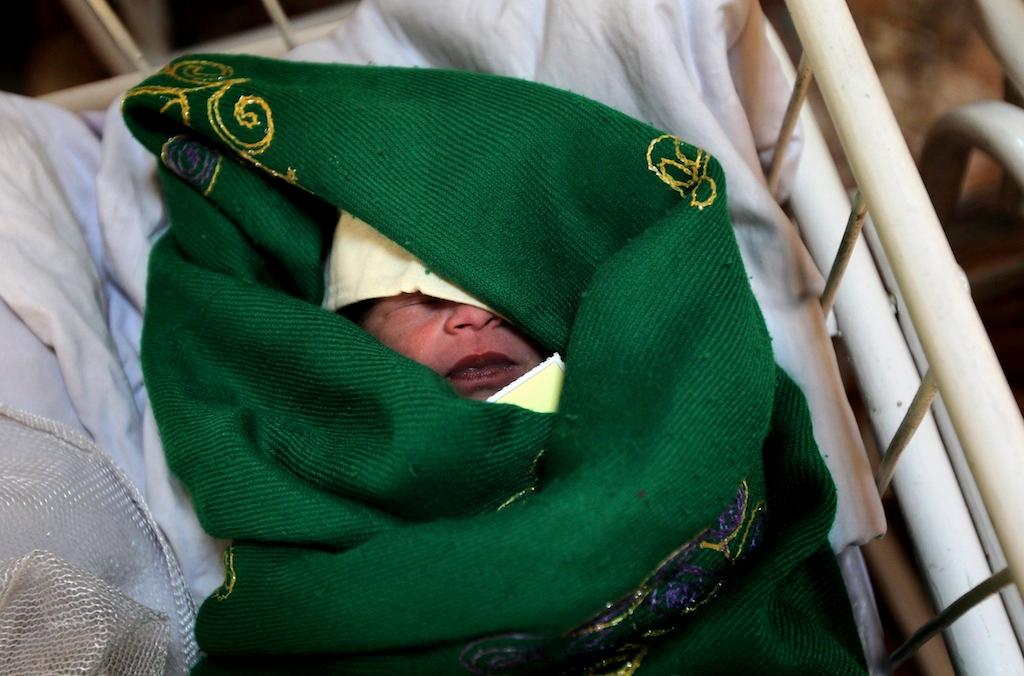UN: world population to hit 10.1 billion by 2100
An Afghan newborn boy who was born earlier that morning sleeps in a cradle in the maternity ward of a hospital in Kabul on March 15, 2010.
The world's population is now expected to hit 10.1 billion by the end of the century, according to a report by the United Nations released Tuesday. The current population is about 6.9 billion.
The population had been expected to stabilize around 9 billion in the middle of the century.
Much of the growth comes from Africa, where the population could triple this century from one billion to 3.6 billion.
“Every billion more people makes life more difficult for everybody — it’s as simple as that,” John Bongaarts, a demographer at the Population Council, told the New York Times. “Is it the end of the world? No. Can we feed 10 billion people? Probably. But we obviously would be better off with a smaller population.”
The U.N. has expressed concern with how the global community will provide enough food, water, energy, education and employment for millions of people in the world’s poorest nations, Bloomberg reports.
One reason for the projected continual growth is that fertility is not declining in some poor countries as much as expected, and it is showing an increase in developed countries like the United States, Britain and Denmark.
"Much of this increase is projected to come from the high-fertility countries, which comprise 39 countries in Africa, nine in Asia, six in Oceania and four in Latin America," the UN press release states.
The current population is expected to reach 7 billion on October 31, according to UN population projections.
Every day, reporters and producers at The World are hard at work bringing you human-centered news from across the globe. But we can’t do it without you. We need your support to ensure we can continue this work for another year.
Make a gift today, and you’ll help us unlock a matching gift of $67,000!
